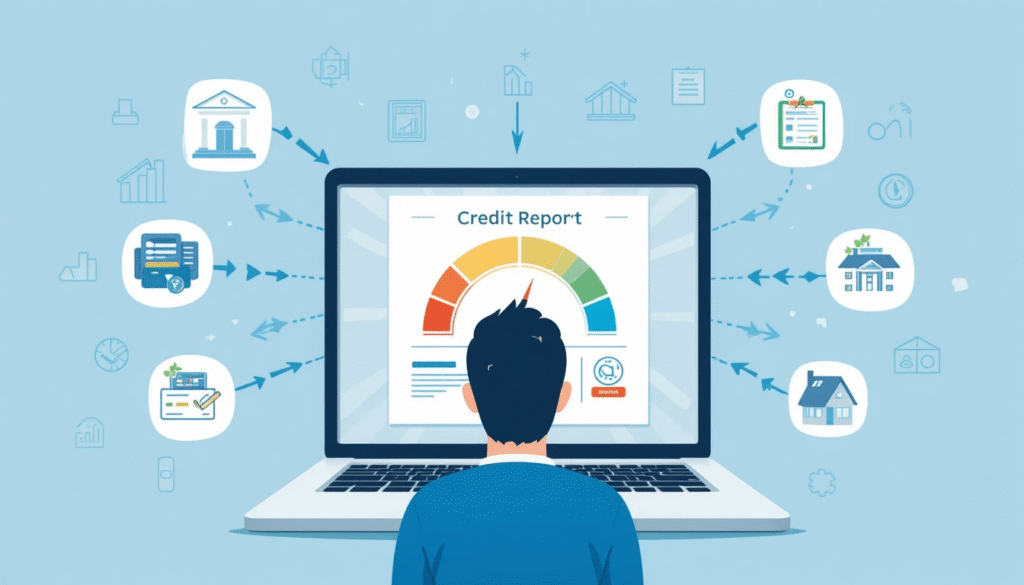In House Financing: A Complete Guide for Buyers
In House Financing has become an increasingly popular method for businesses to offer direct credit solutions to their customers. This approach eliminates third-party lenders like banks and credit unions, allowing businesses to provide loans or financing directly. The primary goal is to ease the purchasing process for customers, improve accessibility to goods or services, and enhance customer loyalty.
What is In House Financing?
In house financing refers to a credit system in which a business provides the financing needed for a purchase directly to the buyer, rather than relying on external financial institutions. It is commonly used in industries where large purchases are involved, such as cars, homes, appliances, or even elective medical procedures. The business acts as both the seller and the lender.
How In House Financing Works

The process of in house financing generally follows these steps:
- The customer selects a product or service.
- The business evaluates the customer’s creditworthiness (often less strict than banks).
- An internal financing agreement is drafted.
- The buyer makes regular payments, usually with interest.
Repayment terms, interest rates, and penalties are decided by the business, offering flexibility and speed that traditional banks may not provide.
Common Industries Using In House Financing
- Automotive dealerships often provide in house loans to car buyers with poor or no credit.
- Real estate companies use owner-financing models to sell properties.
- Retail stores offer installment plans for furniture, electronics, and appliances.
- Medical and dental clinics provide in house credit for procedures not covered by insurance.
- E-commerce platforms are beginning to adopt buy-now-pay-later models directly.
Benefits of In House Financing for Buyers

- Easy Approval: Even those with poor credit may qualify.
- Flexible Terms: Repayment schedules can be customized.
- Faster Process: No need to wait for third-party loan approvals.
- Increased Accessibility: Enables purchases that might otherwise be unaffordable.
- Improved Credit: Timely payments can build credit if reported.
Benefits for Businesses
- Increased Sales: More customers can afford purchases.
- Customer Loyalty: Repeat business and long-term relationships.
- Control: Complete oversight over financing terms and collections.
- Higher Margins: Interest income supplements product/service profits.
- Competitive Edge: Attracts customers who may not qualify elsewhere.
Risks and Disadvantages

- Default Risk: Customers may fail to repay.
- Cash Flow Issues: Payments spread out over time.
- Administrative Overhead: Managing loans requires time and software.
- Regulatory Compliance: Businesses must follow lending laws.
In House Financing vs Traditional Financing
| Criteria | In House Financing | Traditional Financing |
|---|---|---|
| Approval Time | Fast | Slow |
| Credit Requirements | Flexible | Strict |
| Interest Rates | Variable | Competitive |
| Loan Terms | Customizable | Standardized |
| Risk for Business | High (self-financed) | Low (third-party risk) |
Legal and Regulatory Considerations
Businesses offering in house credit must:
- Comply with Truth in Lending Act (TILA)
- Clearly disclose interest rates, terms, and penalties
- Follow fair lending practices
- Ensure data privacy and secure loan records
- Consider licensing based on the state or country
Failure to follow regulations can result in lawsuits, fines, and reputational damage.
Setting Up In House Financing for a Business

- Assess Financial Capacity: Ensure your business can handle delayed income.
- Develop a Credit Policy: Define who qualifies and under what terms.
- Implement Financing Software: Automate billing, tracking, and risk assessment.
- Train Staff: Educate your sales and accounts team on legal and operational procedures.
- Get Legal Advice: Work with attorneys to stay compliant.
Eligibility Requirements for Buyers
Though more lenient than banks, businesses still evaluate:
- Employment status
- Income level
- Payment history
- Down payment ability
- Identification and proof of residence
Credit Reporting and Scoring Impacts

If the business reports to credit bureaus, customers can build or rebuild credit. However, not all businesses report, which can limit credit improvement.
In House Financing in Automotive Sales
Buy Here, Pay Here (BHPH) dealerships specialize in offering in house auto loans. These programs typically:
- Require smaller down payments
- Have higher interest rates
- Include vehicle tracking for repossession if payments are missed
- Serve credit-challenged customers
In House Financing in Real Estate
Owner-financed real estate allows buyers to:
- Avoid bank mortgage applications
- Negotiate directly with the seller
- Often buy properties with low or no credit
- Structure flexible balloon payments and interest-only terms
In House Financing in Retail and E-commerce

Major stores and e-commerce sites now offer in house payment options like:
- Store credit cards
- Buy Now, Pay Later plans (BNPL)
- Monthly installments
These programs improve conversion rates and cart size.
Digital Transformation of In House Lending
Cloud-based platforms and AI tools are transforming in house financing by:
- Automating credit scoring
- Generating legal agreements
- Sending reminders and managing collections
- Analyzing default risk through machine learning
Software and Tools for Managing In House Financing

- FreshBooks: Billing and tracking
- Zoho Books: Automation and reminders
- QuickBooks: Comprehensive financial control
- Lendflow or LendFoundry: Custom in house financing solutions
Case Studies of Successful Implementation
- CarMax: Offers flexible in house auto financing programs that cater to a wide audience.
- Ashley Furniture: Provides monthly installment options in-house with low-interest rates.
- Tesla: Developed its own in house lending and leasing platform.
Tips for Buyers Using In House Financing

- Always compare with traditional financing rates
- Read all terms and disclosures carefully
- Ask if the payments will be reported to credit bureaus
- Make a down payment to reduce interest
- Stay on schedule with payments to avoid penalties
Future Outlook and Trends
- Increased Digitization: More businesses using fintech tools
- Decentralized Finance (DeFi): Blockchain-based lending replacing traditional models
- AI-Based Credit Evaluation: Improved personalization and risk management
- Global Expansion: More developing countries adopting in house models
Conclusion
In House Financing is reshaping how consumers and businesses interact financially. With flexibility, accessibility, and control, it opens up opportunities for many who might otherwise be excluded from traditional credit systems. However, success depends on clear communication, strong credit policies, and legal compliance. Businesses that manage these factors well can leverage in house financing to boost both growth and customer satisfaction.
FAQ’s
1. Is in-house financing better for bad credit?
Yes, in-house financing can be better for bad credit because dealers are more flexible with approval. However, it often comes with higher interest rates and stricter terms.
2. What is an in-house financing?
In-house financing means the car dealership provides the loan directly, without a third-party lender. It’s often marketed as “buy here, pay here” financing.
3. What are the cons of in-house financing?
Cons include high interest rates, limited vehicle choices, and little room for negotiation. It can also affect credit-building if the dealer doesn’t report payments.
4. How do dealerships do in-house financing?
Dealerships use their own funds or partnered lenders to approve loans based on income rather than credit. Payments are made directly to the dealership.
5. Does CarMax do in-house financing?
No, CarMax doesn’t offer traditional in-house financing but works with multiple finance partners. This includes CarMax Auto Finance, which operates similarly with flexible options.


